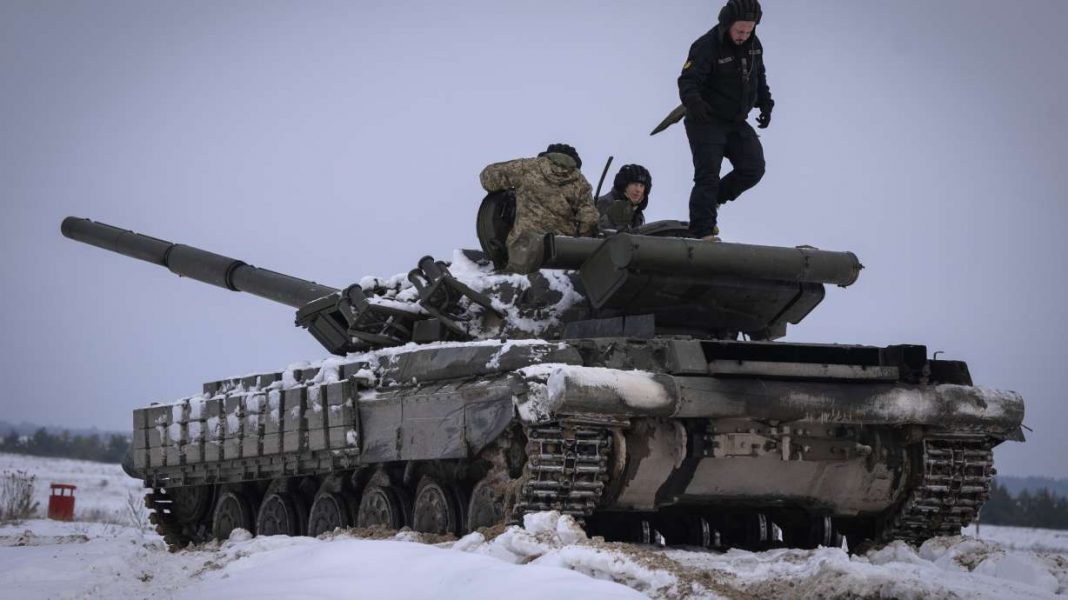From the heart of LONDON — The world is witnessing a period of escalating instability as nations worldwide are ramping up their military expenditure in reaction to Russia’s incursion into Ukraine, the assault by Hamas on Israel, and China’s escalating dominance in the South China Sea.
This is the key finding of a fresh report published this week by the International Institute for Strategic Studies. The report also underscores the growing tensions in the Arctic, North Korea’s relentless pursuit of nuclear weapons, and the emergence of military regimes in Africa’s Sahel region as factors contributing to a “declining security environment.” The London-based research institute has been providing its annual assessment of the global military situation for over six decades.
“The present military-security scenario signals the onset of a potentially more perilous decade, marked by the audacious use of military power by some to assert their claims — invoking a ‘might is right’ philosophy — as well as the aspiration among democracies with similar ideologies for stronger bilateral and multilateral defense alliances in response,” the report stated.
According to the IISS, global defense expenditure surged by 9% to $2.2 trillion last year due to Russia’s full-scale invasion of Ukraine, now in its third year. This has heightened fears that China and other militarily potent states may attempt to enforce their will on their neighbors.
The surge was even more pronounced in NATO, which has backed Ukraine as a shield against further Russian invasions into Europe. The alliance’s non-U.S. members have increased military spending by 32% since Russia’s invasion of Ukraine’s Crimean peninsula in 2014, the institute discovered. Last year, ten European members achieved the alliance’s target of spending 2% of economic output on defense, a significant increase from just two in 2014.
European defense spending has been in the spotlight recently after former U.S. President Donald Trump stated at a campaign rally that he had told an unidentified NATO state during his presidency that he would “encourage” Russia to attack alliance members that failed to meet their funding obligations.
“‘You didn’t pay? You’re delinquent?'” Trump recalled himself saying. “‘No, I would not protect you. In fact, I would encourage them to do whatever they want. You gotta pay. You gotta pay your bills.'”
Trump’s comments have raised concerns among alliance members like Poland, where fears are high due to Russia’s ongoing war in neighboring Ukraine. These comments have also added to the unease over the delay in the U.S. Congress’ approval of a $60 billion aid package for Ukraine.
Ben Barry, a senior fellow in land warfare at the institute, suggested that Congress’ failure to approve the aid could likely embolden Russia to adopt a strategy of wearing down Ukraine’s defenses and causing mass casualties.
Barry posed a question to Ukraine’s allies: “Do they genuinely want Ukraine to win?” He added, “If they truly want Ukraine to win, then they … need to double the amount of aid they’ve given last year, because the financial implications for Europe of a Russian victory are probably even greater than the cost of, say, doubling down on their aid.”
One of the report’s significant revelations is that Russia has lost approximately 3,000 main battle tanks during the conflict in Ukraine, roughly equivalent to Moscow’s active inventory before the full-scale invasion commenced in February 2022.
While Russia has replenished its forces by retrieving 2,000 older tanks from storage, the Ukrainian government in Kyiv is dependent on Western nations to supply the ammunition and weaponry it requires to resist its larger neighbor.
“But Kyiv also continued to demonstrate its ingenuity in other ways, using Western and indigenously developed systems to put Russia’s Black Sea Fleet on the defensive,” the think tank noted, referring to Ukraine’s use of unmanned “maritime vehicles.”
The IISS stated that lessons gleaned from the war in Ukraine are beginning to shape military planning in other countries. Specifically, many countries have realized the need to ramp up production of military equipment and amass larger reserves of material in case they are compelled to engage in a prolonged war.
“A just-in-time mindset that has persisted for almost three decades is giving way to a just-in-case approach, though delivering on these ambitions is challenging,” the report concluded.




Disagree – We must prioritize diplomacy and peace-building over increasing defense spending to avoid escalating global instability in the coming decade.
Disagree – We need to focus on peace, not defense spending, to prevent further instability.